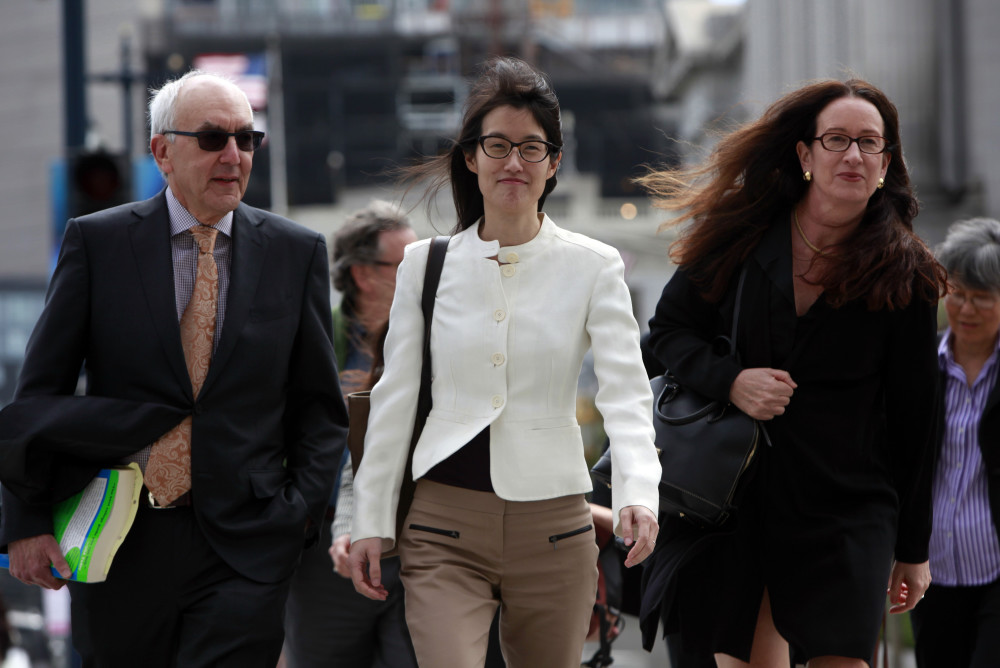By Michelle Quinn
East Bay Times
WWR Article Summarry (tl;dr) Ellen Pao’s gender discrimination lawsuit against VC firm Kleiner Perkins made her one of the most prominent faces of Silicon Valley’s diversity movement. Now she is joining forces with other major players on a new project meant to guide tech companies toward greater diversity and inclusion. Empowering women in tech….we love it!!!!
East Bay Times
When the tech industry is riding high, it’s easy for companies to turn their attention to diversity.
Money flows. Promises are made. And everyone feels better.
But when a stock market correction hits, or venture funding dries up, companies all too often abandon those efforts.
Eight notable women in tech, including Ellen Pao, the former CEO of Reddit, want to change a dynamic that may be keeping Silicon Valley from making real progress in attracting and keeping talented women.
On Tuesday, they launched a new initiative to become a one-stop shop to help small and medium-size companies create a welcoming workplace for women of all backgrounds.
Dubbed “Project Include,” the initiative launched by Pao, Tracy Chou, a software engineer at Pinterest, and Erica Joy Baker, an engineer at Slack, among others, offers what is being billed as the first handbook for building an inclusive tech workplace.
The idea behind the project is simple: Entrepreneurs should create companies that build in goals of diversity and inclusion at the beginning, rather than trying to fix company culture once it is entrenched.
“We are telling startups, ‘Take it seriously now. It will be much harder to do it later,’ ” said Freada Kapor Klein, part of the new initiative and a partner at the Kapor Center of Social Impact, which gives young, underrepresented minorities tech training, among other things.
Despite all the talk about improving diversity in tech in recent years, companies big and small haven’t made much progress, the group points out.
Many do one-off training, give money to a nonprofit focused on the tech talent pipeline, and move on.
“People think they can carry on because someone else is taking care of the issue,” Klein said. “That complacency gets in the way of concerted momentum toward real change.”
Separate from the handbook, the group aims to enlist about 18 firms as part of a pilot program. The companies will report their workforce metrics and meet with the women who formed Project Include, all of whom are doing this separate from their day jobs.
It’s this last part that excites me.
Ever since Google released its workforce demographics two years ago, and other companies followed, I’ve waited for some industry organization to come forward and act as a clearinghouse on diversity best practices. What’s missing is an independent body that collects and verifies data about workforce demographics in a consistent way, issuing reports, holding companies accountable and serving as an independent, trusted source.
Being a member of Project Include would signal to the world that the tech company and its leaders, rather than operating in their own silos, were serious about diversity and inclusion.
Project Include may be a first baby step toward that vision.
On its website, the initiative argues “there is danger in vanity metrics, which provide good optics but lack significance. For example, some companies include non-engineers in their definitions of their engineering teams, artificially inflating their diversity numbers with groups that are usually more diverse. Internally, this can erode trust with employees who see a lack of diversity on their teams, and can delay identifying and addressing problems, while externally, it can lend a company artificial weight as an industry leader.”
Ouch.
In some ways, Project Include’s handbook reads like the human resource manual Pao wished Kleiner Perkins had had when she worked there. Pao unsuccessfully sued Kleiner for gender discrimination.
Topics such as “Understand how performance reviews can be biased” and “Account for power dynamics” seem straight from scenes of her civil jury trial.
One suggestion in Project Include’s handbook is to make hiring a human resource head within the first 25 employees.
That might seem fairly obvious, but as Y-Vonne Hutchinson of the diversity consulting firm ReadySet and part of Project Include says, tech startups “build in human resources late.”
Tech builds in a lot of things late. Project Include is an important effort to bring some rigor to Silicon Valley’s diversity talk. Let’s take a hard look at what demonstrates real progress, and what is just talk — regardless of whether we’re in boom or bust mode.














































































































































































































































































































































































